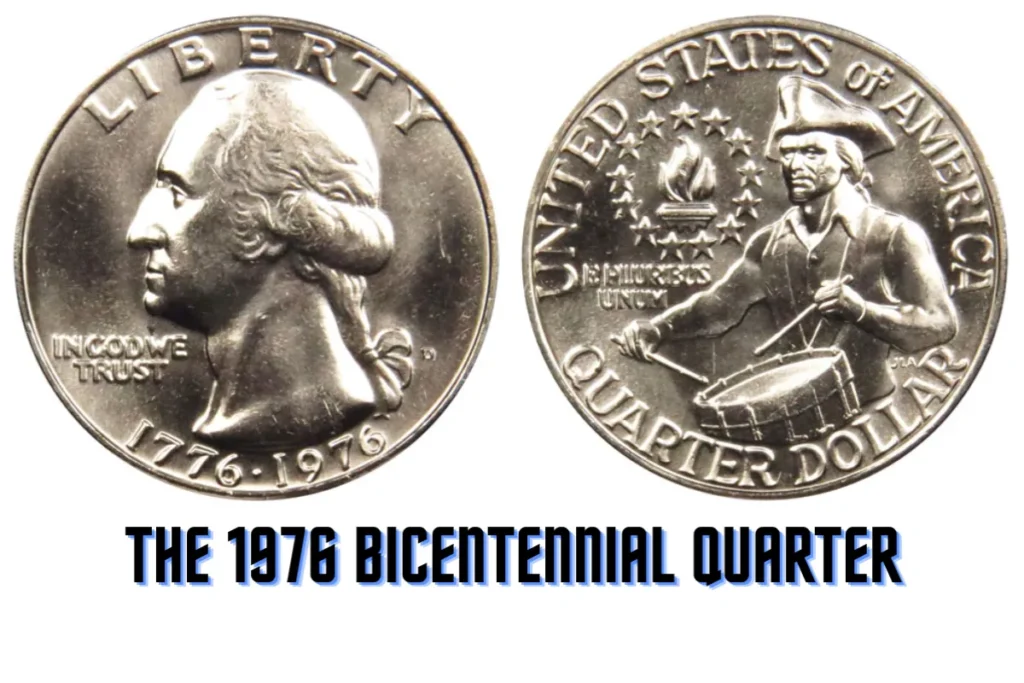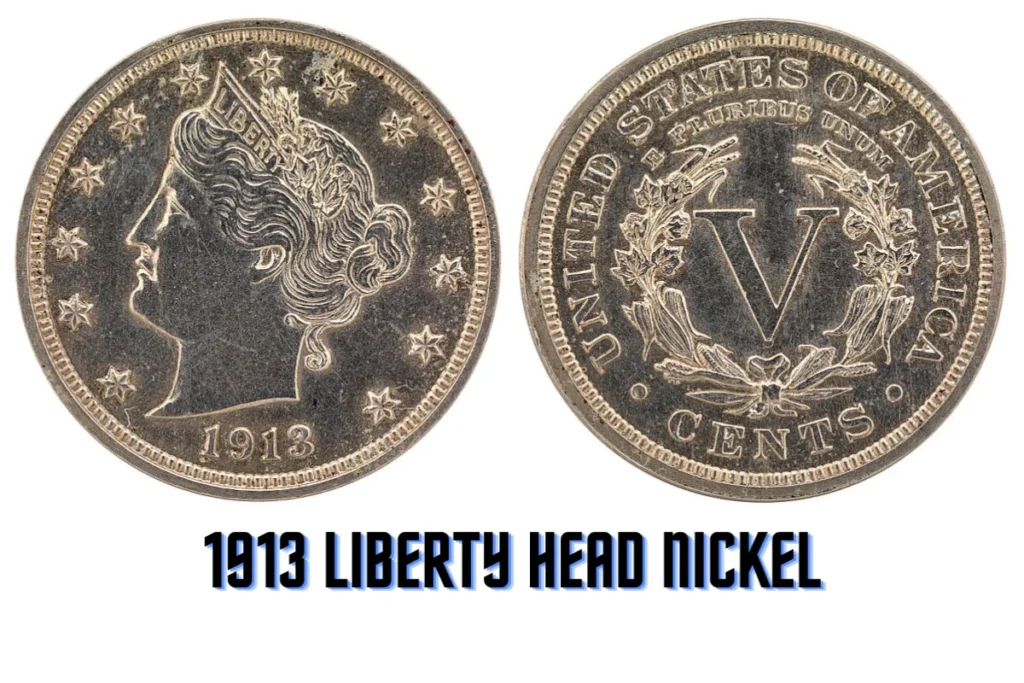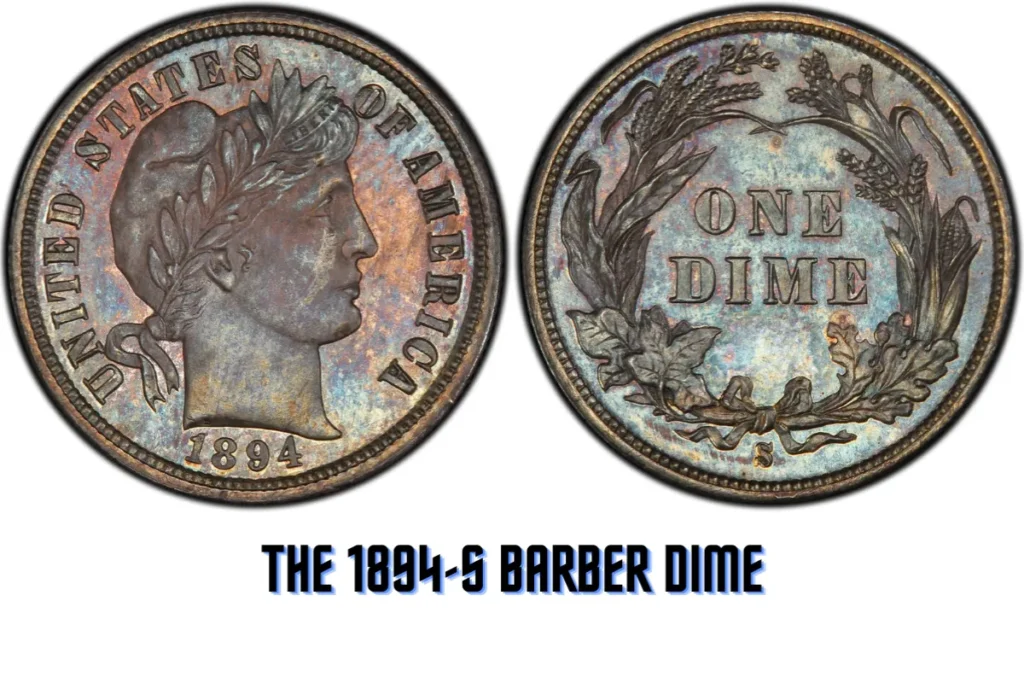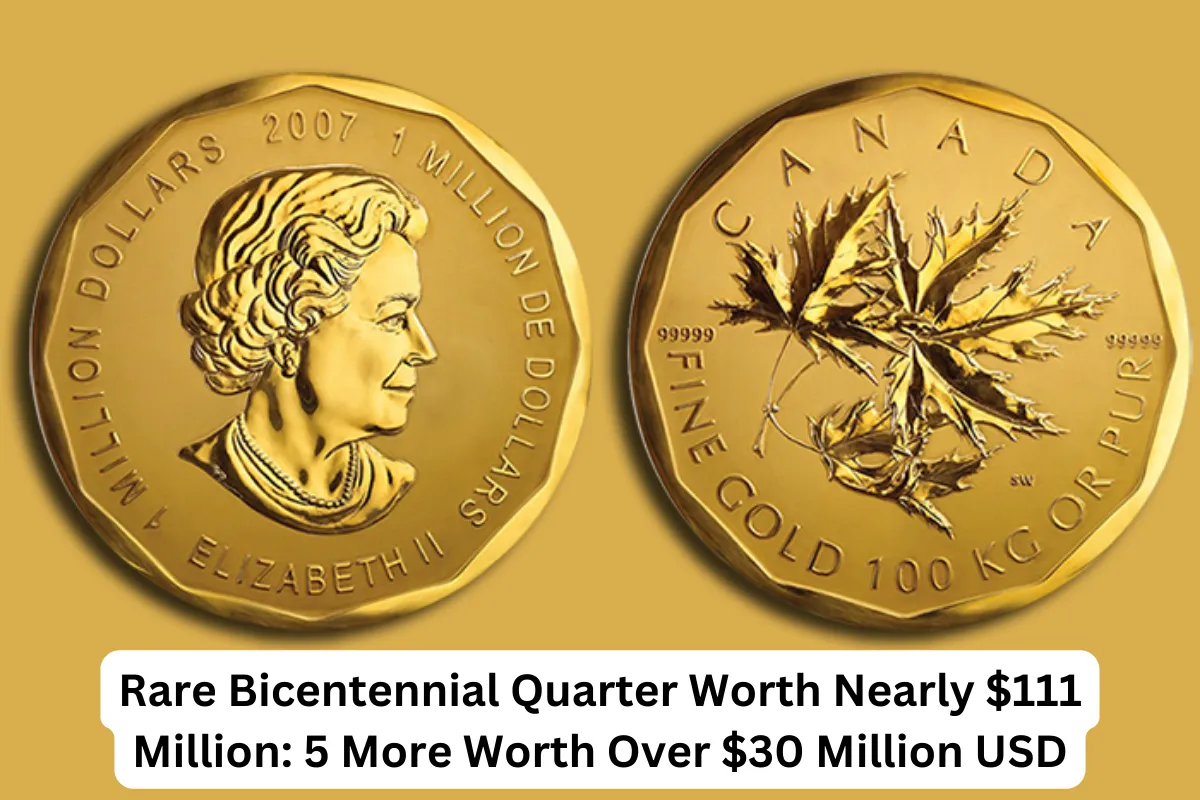In the realm of coin collecting lies a trove of historical, artistic, and economic treasures, all encapsulated within small, circular metal pieces that form an integral part of our daily transactions.
Among these treasures, certain rare coins shine particularly bright, not only for their historical significance but also for their staggering valuations.
At the zenith of this exclusive list stands a rare Bicentennial Quarter,
valued at nearly $111 million, accompanied by five other quarters each commanding values exceeding $30 million USD.
This article delves into the narratives and intricacies surrounding these exceptional coins,
shedding light on the factors contributing to their extraordinary worth.
The $111 Million Bicentennial Quarter

Issued in 1976 to commemorate the United States’ 200th anniversary of independence, the Bicentennial Quarter typically holds a value of no more than 25 cents.
However, a rare variant of this coin, bearing a unique mint error and maintained in impeccable condition, has been appraised at nearly $111 million.
Featuring a double strike and a misprint, rendering it one-of-a-kind,
collectors and historians prize this quarter not only for its scarcity but also for its embodiment of American history and the spirit of independence.
The 1794 Flowing Hair Silver Dollar – $40 Million

Although not a quarter, the 1794 Flowing Hair Silver Dollar warrants recognition for its astounding valuation of $40 million.
As the inaugural dollar coin issued by the United States federal government, its historical significance remains unparalleled.
Depicting Lady Liberty on one side and an eagle on the other, symbolizing freedom and the nation’s resilience, its rarity and historical import,
embodying the dawn of American coinage, contribute to its lofty appraisal.
The 1913 Liberty Head Nickel – $35 Million

Breaking away from the quarter denomination, yet too valuable to disregard, is the 1913 Liberty Head Nickel, valued at approximately $35 million, with only five known specimens in existence.
Never officially released into circulation, its origins remain shrouded in mystery,
adding to its allure and making it a coveted piece among numismatists, cherished for its tale, rarity, and enigmatic creation.
The 1804 Silver Dollar – $32 Million

Dubbed the “King of American Coins,” the 1804 Silver Dollar commands an approximate value of $32 million.
Minted in the 1830s despite its 1804 date, it was intended as a diplomatic gift,
showcasing the unique backstory and rarity that render it one of the world’s most sought-after and valuable coins.
The 1894-S Barber Dime – $31 Million

With a valuation of $31 million, the 1894-S Barber Dime stands as one of the rarest and most valuable coins in the United States.
With only 24 minted and a handful surviving, its scarcity, combined with the intrigue surrounding its limited production and condition,
captivates collectors, offering a glimpse into the late 19th-century U.S. Mint and its history.
The 1787 Brasher Doubloon – $30 Million

Valued at $30 million, the 1787 Brasher Doubloon is a gold coin predating the U.S. Mint, crafted by Ephraim Brasher, a skilled goldsmith and silversmith.
Its unique designs and historical significance, originating from the personal
endeavors of an artisan in the early days of American nationhood, contribute to its immense value.
Conclusion
These coins, particularly the rare Bicentennial Quarter valued at nearly $111 million, transcend mere currency, representing art, history, and economics intertwined.
They narrate tales of America’s early years, the evolution of its currency, and the cherished values it upholds.
Collectors and enthusiasts alike treasure these coins not only for their monetary worth but also for the profound reflections of American history they encapsulate.
As we explore the realm of rare coins, we uncover more than metal and mint marks;
we discover the rich tapestry of human civilization and the enduring legacy of our collective past.
